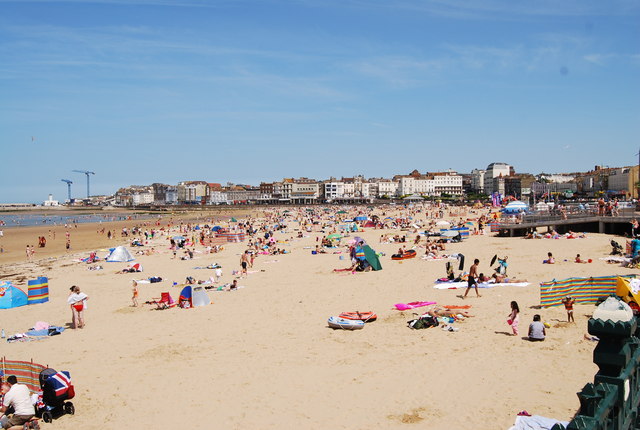
Official figures indicate that the warm weather experienced in June contributed to a more significant than expected upswing in UK economic growth.
The rise in temperatures benefited sectors such as pubs, restaurants, and the construction industry, ultimately propelling the economy by 0.5%.
The stronger performance led to a 0.2% expansion of the economy from April to June.
Nonetheless, the influence of NHS worker strikes on June's output and concerns about a potential recession continue to loom over the UK's longer-term growth.
Darren Morgan, the Director of Economic Statistics at the Office for National Statistics (ONS), which released the data, pointed out three factors that played a role in the UK's performance in June: the number of working days, weather conditions, and industrial action.
Morgan noted that while the economy rebounded from the additional Bank Holiday in May due to the King's Coronation, the manufacturing sector - particularly the automotive industry - exhibited robustness.
He stated, "The services sector also had a strong month, with publishing, car sales, and legal services performing well. However, this was partially offset by declines in the health sector, which was impacted by further strike actions."
Understanding GDP and Its Impact Although June's growth surpassed expectations, the UK remains the sole country among the G7 nations that hasn't fully restored its gross domestic product (GDP) to pre-Covid levels, based on the latest quarterly figures.
James Smith, Research Director at the Resolution Foundation think tank, interpreted the 0.2% growth between April and June as indicative of the UK's "relative resilience."
Following a 0.1% expansion in the first quarter of this year, the UK successfully avoided a recession. A recession typically emerges when the economy contracts for two consecutive quarters.
Smith remarked that while the UK has averted a downturn, it might "feel like a recession to many as families struggle with the ever-rising cost of essentials and higher mortgage repayments."
Challenges and Concerns Phil Simpson, Managing Director of Lancaster Brewery, which operates venues in south Cumbria and north Lancashire, conveyed the unparalleled nature of the current business environment, drawing on his two decades of experience.
"It's tough," he acknowledged. "We emerged from Covid, which was obviously devastating, and entered a world that's equally challenging. It's better than Covid, but only slightly."
While the company's sales have risen by approximately 9% compared to the previous year, increased running costs due to inflation are squeezing profits.
He noted that the hospitality sector is grappling with a "double assault" from internal pressures such as wages, energy expenses, and food/drink costs, as well as external pressures like heightened interest rates and inflation.
Simpson added, "People don't have the disposable income they once did...everyone's just hanging on. There's hardly any good news in our industry."
Capital Economics predicts that the UK may encounter a "mild recession" later this year once the impact of successive interest rate hikes by the Bank of England takes effect.
Ruth Gregory, Deputy Chief UK Economist at Capital Economics, commented on the complexities of interpreting June's growth, stating, "The Bank Holiday, unusually warm weather, and strikes make it difficult to accurately gauge the economy's true health."
Gregory emphasized that underlying activity is still growing, albeit at a gradual pace, and the expectation is that GDP will decline between July and September, signaling the commencement of a mild recession.
Impending Challenges The persistence of strikes by healthcare workers could continue to drag on the UK economy, as industrial action was witnessed in July.
Furthermore, junior doctors initiated a four-day walkout on Friday. Health authorities cautioned that NHS services were at a tipping point, and the costs of covering the previous four strikes are estimated to be around £1 billion, in addition to the backlog of postponed treatments.
Prime Minister Rishi Sunak has positioned economic growth as one of his primary commitments.
In response to the latest figures, Chancellor Jeremy Hunt asserted that the government's efforts to combat higher prices were yielding results, thereby laying the necessary strong foundations for economic growth. Photo by Nigel Chadwick, Wikimedia commons.



































